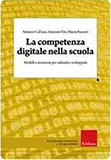 Can Educators Make a Difference? Experimenting with, and Experiencing, Democracy in Education (2012). Paul R. Carr, David Zyngier, Marc Pruyn (Eds.) CONTENTS: Acknowledgements. Foreword: Reflections on the Global Doing Democracy Research Project, Daniel Schugurensky. Introducing the Global Doing Democracy Research Project: Seeking to Understand the Perspectives, Experiences and Perceptions of Teachers in Relation to Democracy in Education, David Zyngier and Paul R. Carr. Democracy, Critical Pedagogy and the Education of Educators, Paul R.Carr. Re-Discovering Democracy: Putting Action (Back) into Active Citizenship and Praxis (Back) into Practice, David Zyngier. Can We Teach Deep Democracy: And Can It Make a Difference? Carolyn M. Shields. Getting Beyond Flat-Out Bored: The Challenges and Possibilities of Creating a Democratic Space for Social Justice Education in Publically Funded Schools, Michael O’Sullivan. Preservice Teachers’ Conceptions of Democratic Essence: Interpretations of Democratic Principles, and Their Connections to Social Justice, Economic Class, and Spirituality/Religion in the United States, Thomas A. Lucey. What Kind of Citizenship for What Kind of Democracy? Are We Spectators of Everyday Events or Protagonists in History? Adriana Murriello, Andrea Ledwith, and Cecilia Naddeo. Teacher Education and Democracy: Preparing Teachers in Metropolitan Buenos Aires, María Delia Traverso. Education for Democracy in Perúvian Society, Felix Reátegui and Susana Frisancho. Doing Democracy in Education: Perspectives of Malaysian Principals, Sazali Yusoff. “Critical Multicultural Social Studies” for “Deep Democracy”: Theory and Practice, Marc Pruyn.
Can Educators Make a Difference? Experimenting with, and Experiencing, Democracy in Education (2012). Paul R. Carr, David Zyngier, Marc Pruyn (Eds.) CONTENTS: Acknowledgements. Foreword: Reflections on the Global Doing Democracy Research Project, Daniel Schugurensky. Introducing the Global Doing Democracy Research Project: Seeking to Understand the Perspectives, Experiences and Perceptions of Teachers in Relation to Democracy in Education, David Zyngier and Paul R. Carr. Democracy, Critical Pedagogy and the Education of Educators, Paul R.Carr. Re-Discovering Democracy: Putting Action (Back) into Active Citizenship and Praxis (Back) into Practice, David Zyngier. Can We Teach Deep Democracy: And Can It Make a Difference? Carolyn M. Shields. Getting Beyond Flat-Out Bored: The Challenges and Possibilities of Creating a Democratic Space for Social Justice Education in Publically Funded Schools, Michael O’Sullivan. Preservice Teachers’ Conceptions of Democratic Essence: Interpretations of Democratic Principles, and Their Connections to Social Justice, Economic Class, and Spirituality/Religion in the United States, Thomas A. Lucey. What Kind of Citizenship for What Kind of Democracy? Are We Spectators of Everyday Events or Protagonists in History? Adriana Murriello, Andrea Ledwith, and Cecilia Naddeo. Teacher Education and Democracy: Preparing Teachers in Metropolitan Buenos Aires, María Delia Traverso. Education for Democracy in Perúvian Society, Felix Reátegui and Susana Frisancho. Doing Democracy in Education: Perspectives of Malaysian Principals, Sazali Yusoff. “Critical Multicultural Social Studies” for “Deep Democracy”: Theory and Practice, Marc Pruyn.
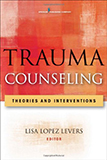 Trauma Counseling: Theories and Interventions (2012) Lisa Lopez Levers CONTENT: Section I: Trauma and Context Chapter 1: An Introduction to Counseling Survivors of Trauma: Beginning to Understand the Context of Trauma; Chapter 2: Historical Contexts of Trauma; Chapter 3: Theoretical Contexts of Trauma Counseling; Chapter 4: Neurobiological Effects of Trauma and Psychopharmacology; Section II: Trauma of Loss, Vulnerability, and Interpersonal Violence Chapter 5: Issues of Loss and Grief; Chapter 6: Trauma Survivorship and Disability; Chapter 7: Sexual Trauma: An Ecological Approach to Conceptualization and Treatment; Chapter 8: Trauma Experienced in Early Childhood; Chapter 9: Trauma Experienced in Adolescence; Chapter 10: Treating Adult Trauma Survivors; Chapter 11: Intimate Partner Violence; Chapter 12: Elder Abuse; Chapter 13: Addictions and Psychological Trauma: Implications for Counseling Strategies Chapter 14: Criminal Victimization; Chapter 15: Traumatic Aftermath of Homicide and Suicide Section III: Intolerance and the Trauma of Hate Chapter 16: Existential Perspectives on the Psychology of Evil; Chapter 17: Racial and Ethnic Intolerance: A Framework for Violence and Trauma; Chapter 18: Understanding and Responding to Sexual and Gender Prejudice and Victimization Section IV: Community Violence, Crisis Intervention, and Large-Scale Disaster Chapter 19: Contextual Issues of Community-based Violence and of Crisis and Disaster in Institutional Settings; Chapter 20: School Violence and Trauma; Chapter 21: Workplace and Campus Violence; Chapter 22: Natural Disasters and First Responder Mental Health; Chapter 23: Genocide, Ethnic Conflict, and Political Violence; Chapter 24: The Impact of War on Civilians; Chapter 25: The Impact of War on Military Veterans; Chapter 26: Disaster Behavioral Health: Counselors Responding to Terrorism? Section V: Clinical Assessment and Treatment Issues Chapter 27: Assessment in Psychological Trauma: Methods and Intervention; Chapter 28: Models for Trauma Intervention: Integrative Approaches to Therapy; Chapter 29: Strategies and Techniques for Counseling Survivors of Trauma Section VI: Collaborative Work in the Area of Trauma Counseling Chapter 30: Ethical Perspectives on Trauma Work; Chapter 31: Vicarious Traumatization; Chapter 32: Therapist Self-Care: Being a Healing Counselor Rather Than a Wounded Healer; Chapter 33: Trauma and Supervision; Chapter 34: Conclusion: The Continued Need for Developing Integrative and Systemic Approaches to Trauma
Trauma Counseling: Theories and Interventions (2012) Lisa Lopez Levers CONTENT: Section I: Trauma and Context Chapter 1: An Introduction to Counseling Survivors of Trauma: Beginning to Understand the Context of Trauma; Chapter 2: Historical Contexts of Trauma; Chapter 3: Theoretical Contexts of Trauma Counseling; Chapter 4: Neurobiological Effects of Trauma and Psychopharmacology; Section II: Trauma of Loss, Vulnerability, and Interpersonal Violence Chapter 5: Issues of Loss and Grief; Chapter 6: Trauma Survivorship and Disability; Chapter 7: Sexual Trauma: An Ecological Approach to Conceptualization and Treatment; Chapter 8: Trauma Experienced in Early Childhood; Chapter 9: Trauma Experienced in Adolescence; Chapter 10: Treating Adult Trauma Survivors; Chapter 11: Intimate Partner Violence; Chapter 12: Elder Abuse; Chapter 13: Addictions and Psychological Trauma: Implications for Counseling Strategies Chapter 14: Criminal Victimization; Chapter 15: Traumatic Aftermath of Homicide and Suicide Section III: Intolerance and the Trauma of Hate Chapter 16: Existential Perspectives on the Psychology of Evil; Chapter 17: Racial and Ethnic Intolerance: A Framework for Violence and Trauma; Chapter 18: Understanding and Responding to Sexual and Gender Prejudice and Victimization Section IV: Community Violence, Crisis Intervention, and Large-Scale Disaster Chapter 19: Contextual Issues of Community-based Violence and of Crisis and Disaster in Institutional Settings; Chapter 20: School Violence and Trauma; Chapter 21: Workplace and Campus Violence; Chapter 22: Natural Disasters and First Responder Mental Health; Chapter 23: Genocide, Ethnic Conflict, and Political Violence; Chapter 24: The Impact of War on Civilians; Chapter 25: The Impact of War on Military Veterans; Chapter 26: Disaster Behavioral Health: Counselors Responding to Terrorism? Section V: Clinical Assessment and Treatment Issues Chapter 27: Assessment in Psychological Trauma: Methods and Intervention; Chapter 28: Models for Trauma Intervention: Integrative Approaches to Therapy; Chapter 29: Strategies and Techniques for Counseling Survivors of Trauma Section VI: Collaborative Work in the Area of Trauma Counseling Chapter 30: Ethical Perspectives on Trauma Work; Chapter 31: Vicarious Traumatization; Chapter 32: Therapist Self-Care: Being a Healing Counselor Rather Than a Wounded Healer; Chapter 33: Trauma and Supervision; Chapter 34: Conclusion: The Continued Need for Developing Integrative and Systemic Approaches to Trauma
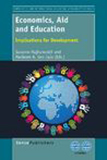
Economics, Aid, and Education: Implications for Development (2014) Suzanne Majhanovich & MacLeans A. Geo-JaJa (Eds.) CONTENTS Part I: The Politics of Aid and Development The Economics of Aid: Implications for Education and Development Steven J. Klees & Omar Qargha; The New Geopolitics of Educational Aid: From Cold Wars to Holy Wars? Mario Novell; Aid in Education: A Perspective From Pakistan Rukhsana Zia; Critical Analysis of Economics of Education Theories with Regard to the Quality of Education, Hasan Hüseyin Aksoy, Hatice Őzden Aras, Aygülen Kayahan & Dilek Çankaya Part II: Education and Development in a Neoliberal World How the English Language Contributes to Sustaining the Neoliberal Agenda: Another Take on the Strange Non-Demise of Neoliberalism, Suzanne Majhanovich; The Economic Capture of Criticality and the Changing University in Australia and The UK, Christine Daymon & Kathy Durkin; Systems of Reason(ing) in the Idea of Education Reforms for Economic Development: The Puerto Rican Context, Bethsaida Nieves; Decentralisation, Marketisation and Quality-Orientation: Major Pursuits of Basic Education Reforms in China from 1985 to 2010, Hu Rongkun, Qian Haiyan & Allan Walker; Narrative as an Educational Tool for Human Development and Autonomy: A Case Study with Homeless Single Mothers in Uruguay, Helena Modzelewski Part III: The African Context Education Localization for Optimizing Globalization’s Opportunities and Challenges in Africa, Macleans A. Geo-JaJa; The Rising ‘China Model’ of Educational Cooperation with Africa: Features, Discourses and Perceptions, Tingting Yuan; Educational Policy Reforms in Africa for National Cohesion, Jonah Nyaga Kindiki; Breaking Down Borders in Development Education: Something’s Gotta Give, Beth D. Packer; Skills Management System for Better School-to-Work Transitions in Africa N. Alleki
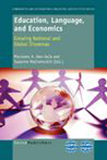 Education, Language, and Economics: Growing National and Global Dilemmas (2010) Suzanne Majhanovich and Macleans Geo-JaJa (Eds.) CONTENT: Part I: Education Perspectives from Asia and Africa Globalisation and Growing Global Perspectives in Higher Education Curriculum: General Tendencies in India, Solomon Arulraj David and Danny Wildemeersch; A Comparative Study of Total Quality Management (TQM) Approaches to Student Services at Private Universities in Japan and Thailand, David T. Gamage, Jaratdao Suwanabroma, Takeuki Ueyama, Sekio Hada and Edsuo Sekikawa; A Threat to Educational Quality in Sierra Leone’s Achieving Education for AlL, Mikako Nishimuko; Development and Education Challenges in the Niger Delta in Nigeria; Macleans A. Geo-JaJa and Steve Azaiki Part II: Cultural and Language Issues in Education Ethnolinguistic Minorities and Non-Dominant Languages in Mainland Southeast Asian Language- in- Education Policies, Kimmo Kosonen; Relating Intercultural Education to Equal Opportunity in Education, Christian Horst; Language and Culture for Development, Birgit Brock-Utne; Canadian Language Policies: An Example of Political Expediency? Suzanne Majhanovich Part III: Internationalization of Education Cultural Readiness for Internationalization: A Model for Planned Change, Melanie Agnew and W. Duffie VanBalkom; The Bologna Declaration and the Risks of Internationalization, Edzard J. Boerma; Between National Higher Education Systems and Internationalisation: The Case of Teacher Education in Europe, Pavel Zgaga; Motivation and Incentives for University Entrepreneurialism in Eastern and Western Europe: A Comparative Analysis Based on the Euerek Project, Aljona Sandgren and Görel Strömqvist;
Education, Language, and Economics: Growing National and Global Dilemmas (2010) Suzanne Majhanovich and Macleans Geo-JaJa (Eds.) CONTENT: Part I: Education Perspectives from Asia and Africa Globalisation and Growing Global Perspectives in Higher Education Curriculum: General Tendencies in India, Solomon Arulraj David and Danny Wildemeersch; A Comparative Study of Total Quality Management (TQM) Approaches to Student Services at Private Universities in Japan and Thailand, David T. Gamage, Jaratdao Suwanabroma, Takeuki Ueyama, Sekio Hada and Edsuo Sekikawa; A Threat to Educational Quality in Sierra Leone’s Achieving Education for AlL, Mikako Nishimuko; Development and Education Challenges in the Niger Delta in Nigeria; Macleans A. Geo-JaJa and Steve Azaiki Part II: Cultural and Language Issues in Education Ethnolinguistic Minorities and Non-Dominant Languages in Mainland Southeast Asian Language- in- Education Policies, Kimmo Kosonen; Relating Intercultural Education to Equal Opportunity in Education, Christian Horst; Language and Culture for Development, Birgit Brock-Utne; Canadian Language Policies: An Example of Political Expediency? Suzanne Majhanovich Part III: Internationalization of Education Cultural Readiness for Internationalization: A Model for Planned Change, Melanie Agnew and W. Duffie VanBalkom; The Bologna Declaration and the Risks of Internationalization, Edzard J. Boerma; Between National Higher Education Systems and Internationalisation: The Case of Teacher Education in Europe, Pavel Zgaga; Motivation and Incentives for University Entrepreneurialism in Eastern and Western Europe: A Comparative Analysis Based on the Euerek Project, Aljona Sandgren and Görel Strömqvist;

Pitfalls of the Obvious: Educational Technologies and Critical Rhetoric (Italian) (2015) Maria Ranieri
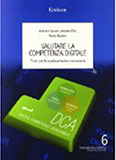
Assess the Digital Competence: Tests for Primary and Secondary School (Italian) (2011) Antonio Calvani, Antonio Fini, Maria Ranieri
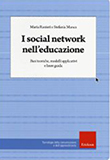 Social Networks in Education: Theoretical Basis, Application Models and Guidelines (Italian) (2011) Maria Ranieri
Social Networks in Education: Theoretical Basis, Application Models and Guidelines (Italian) (2011) Maria Ranieri
Digital Competence in School: Models and Tools to Evaluate and Develop (Italian) (2010) Antonio Calvani, Antonio Fini, Maria Ranieri

